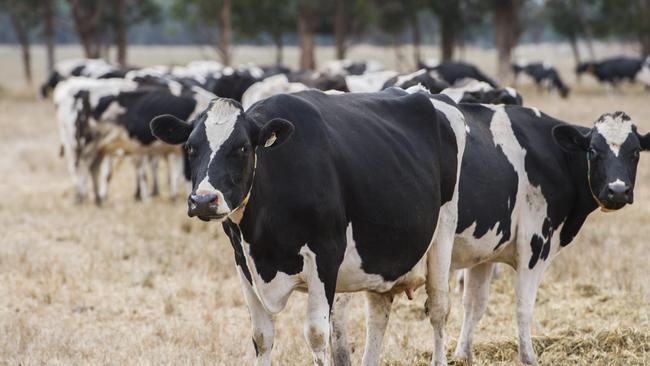Climate change: Victoria’s plan to reduce emissions in agriculture sector
Trials to reduce methane on dairy farms with feed additives such as seaweed will be funded as part of the Victorian Government’s plan to reduce emissions. See what else will be a focus.

The Victorian Government has pledged to work with the state’s agriculture industry over the next four years to establish the sector’s role in achieving a net-zero emissions economy.
An independent advisory council of farmers, industry leaders and climate change experts, named the Victorian Agriculture and Climate Change Council, will develop a Victorian Agriculture and Climate Change Statement.
Chair of the group, Alexandra Gartmann, said the Agriculture Sector Pledge unlocked “opportunities for cross-sector co-ordination and tangible on-farm action”.
Victorian Agriculture Minister Mary-Anne Thomas said it accelerated the actions needed to achieve the Government’s long-term vision for the sector.
“Victoria is well-positioned to be a leader in low-emissions agriculture and we have shown it is possible to include this critical sector in an emissions reduction plan, without compromising its growth or profitability,” she said.
The Victorian Government has allocated the following funding:
$3.9 million for research into agriculture emissions reduction technologies and practices, including flagship trials to reduce methane on dairy farms with feed additives such as 3-NOP and seaweed;
$15.4 million to provide information, tools and services to support adaptation and climate risk management across the agriculture sector so farmers and growers can measure and reduce on-farm emissions. This will include updating the Victorian Land Use Information System and building an Agriculture Climate Spatial Tool to assist farmers make tailored decisions based on different climate scenarios; and
$5 million in a pool for direct grants to support up to 250 farmers to assess their climate risk and emissions profile and take action to reduce emissions and adapt to the changing climate.
Separately, the $15.3 million Victorian Carbon Farming Program will provide incentives for landowners to sequester carbon by planting agroforestry and shelterbelt trees on their land while also increasing productivity and providing income.
MORE


